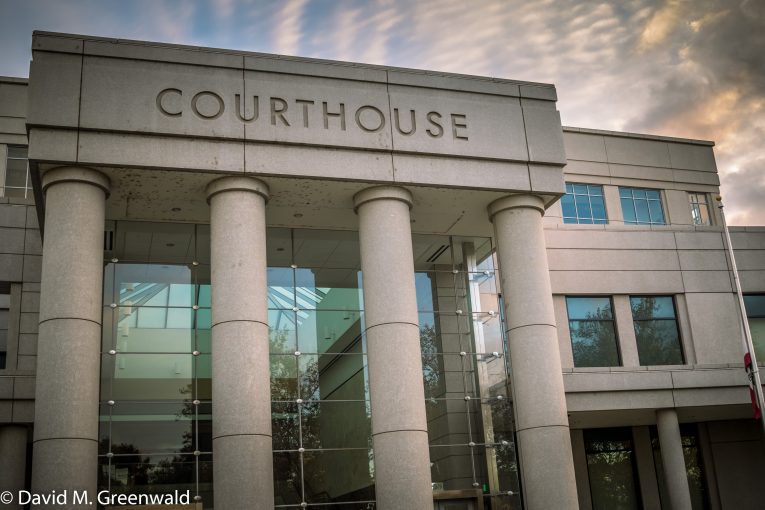
 By Setarah Jahid
By Setarah Jahid
On May 29, 2018, a hearing commenced with Judge Timothy L. Fall presiding. The matters of the hearing were centered on the date of April 17, 2018, as that was the day that the defendant, 60-year-old David Smith, was alleged to have violated his probation.
According to the first witness, Probation Officer Chechurka, Smith violated his probation on April 17 at 5:02 pm and 5:09-5:19 pm. At 5:02, Smith was detected by his GPS device to have passed by Memorial Park in West Sacramento, the site of the incident that got him incarcerated in the first place. At 5:09-5:19 pm, he was detected to be at Westmore Oaks Elementary School.
Officer Chechurka, after receiving notification of Smith’s whereabouts, headed to the elementary school at 5:32 p.m. He stated that the marquee in front of the school indicated that there was a girl’s soccer match taking place, which alarmed him because the device alerted him that Smith was also present at the same time. However, when questioned by Deputy Public Defender John Sage, Chechurka stated he did not see Mr. Smith present at the scene.
During direct examination, Deputy DA Matt De Moura asked Chechurka if he eventually got ahold of the defendant, to which he responded yes. At 6 p.m. he made his way to Smith’s home, which is  800 feet away from the elementary school. When the officer asked Smith about his activities for that day, he responded by saying he was at home doing yard work.
800 feet away from the elementary school. When the officer asked Smith about his activities for that day, he responded by saying he was at home doing yard work.
During cross-examination, Mr. Sage asked the officer if the GPS device had a margin of error, to which he said yes, the devices do have room for error. Additionally, Mr. Sage established that the officer was basing his findings solely on the readings given from the software, and therefore, in his opinion, the officer was not an expert on the GPS device itself. In Sage’s words, “Violation was based solely on GPS device, no human eye put him at either location.”
The second and final witness called to the stand was the defendant himself, Mr. Smith. He testified that he did not agree with the statements provided by the probation officer. For instance, the GPS device recorded Smith to have been traveling 10 mph by Memorial Park. According to Smith, he cannot physically bike more than 4 mph and “it was the end of the day, I’m 60 years old, I get tired.” He also stated that he told the officer to check school cameras, it would verify that he was not at the elementary school when the device detected him to be there. The officer did not check for security cameras.
During closing arguments, Mr. Sage argued for 90 days at most, as opposed to the 180 scheduled for Smith to serve for the violation. The court, however, found that 180 was still appropriate. According to Judge Fall, there was “more than sufficient evidence of a violation.”
